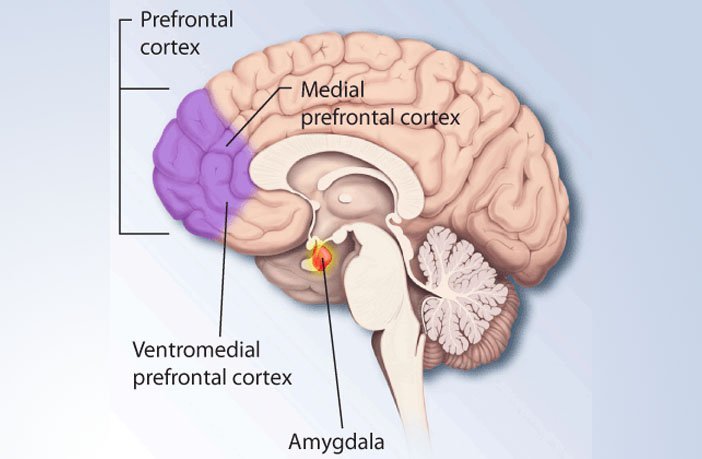Controversial Study Links Religious Fundamentalism With Brain Damage
MessageToEagle.com – A new controversial study suggests there is a link between religious fundamentalism and brain damage. According to researchers lesions in the ventromedial prefrontal cortex reduce cognitive flexibility – the ability to challenge our beliefs based on new evidence.
Scientists are not saying that all religious people suffer brain damage. They define fundamentalism as a cognitive approach that “embodies adherence to a set of firm religious beliefs advocating unassailable truths about human existence.“
“Human beliefs, and in this case religious beliefs, are one of the cognitive and social knowledge stores that distinguish us from other species and are an indication of how evolution and cognitive/social processes influenced the development of the human brain,” Jordan Grafman of Northwestern University said.
To reach this conclusion, researchers of Northwestern University, utilized data gathered from Vietnam War veterans, with and without brain injuries as part of the Vietnam Head Injury Study. They compared levels of religious fundamentalism between 119 vets who had lesions and 30 veterans who didn’t. They found veterans with these lesions reported higher levels of religious fundamentalism compared to those without the lesions.
See also:
Why Did Our Brains Start Shrinking 20,000 Years Ago?
It Is Possible To Erase Fear From Your Brain
‘God Spots’ And Spirituality – What Is The Connection?
The finding indicates that “the variation in the nature of religious beliefs are governed by specific brain areas in the anterior parts of the human brain and those brain areas are among the most recently evolved areas of the human brain,” Grafman explained.
How free these areas are from disease, in particular the part known as the dorsolateral prefrontal cortex, may determine a person’s mental openness – necessary to appreciate the “diversity of religious thought.

“Beliefs have sculpted our behaviors for thousands of years and helped shape the development and sophistication of our brains,” Grafman explained. “Such beliefs systems are dependent upon other aspects of our cognitive and social processes and those interactions would be important to understand. For example, how does openness in your personality affect how your form and act upon your beliefs? What about genetic predisposition and its effect upon belief systems?”
“While religious and other beliefs can be studied selectively and independently from other cognitive and social processes, their dependence upon, and interaction with, other brain functions will be an important area of research in the coming decades. As they say, ‘the devil is in the details,’” Grafman said.
Researchers who conducted this study also point out that there is still much to learn about how these areas influence religious belief.
The study has been published in the journal Neuropsychologia.
MessageToEagle.com
Expand for references










